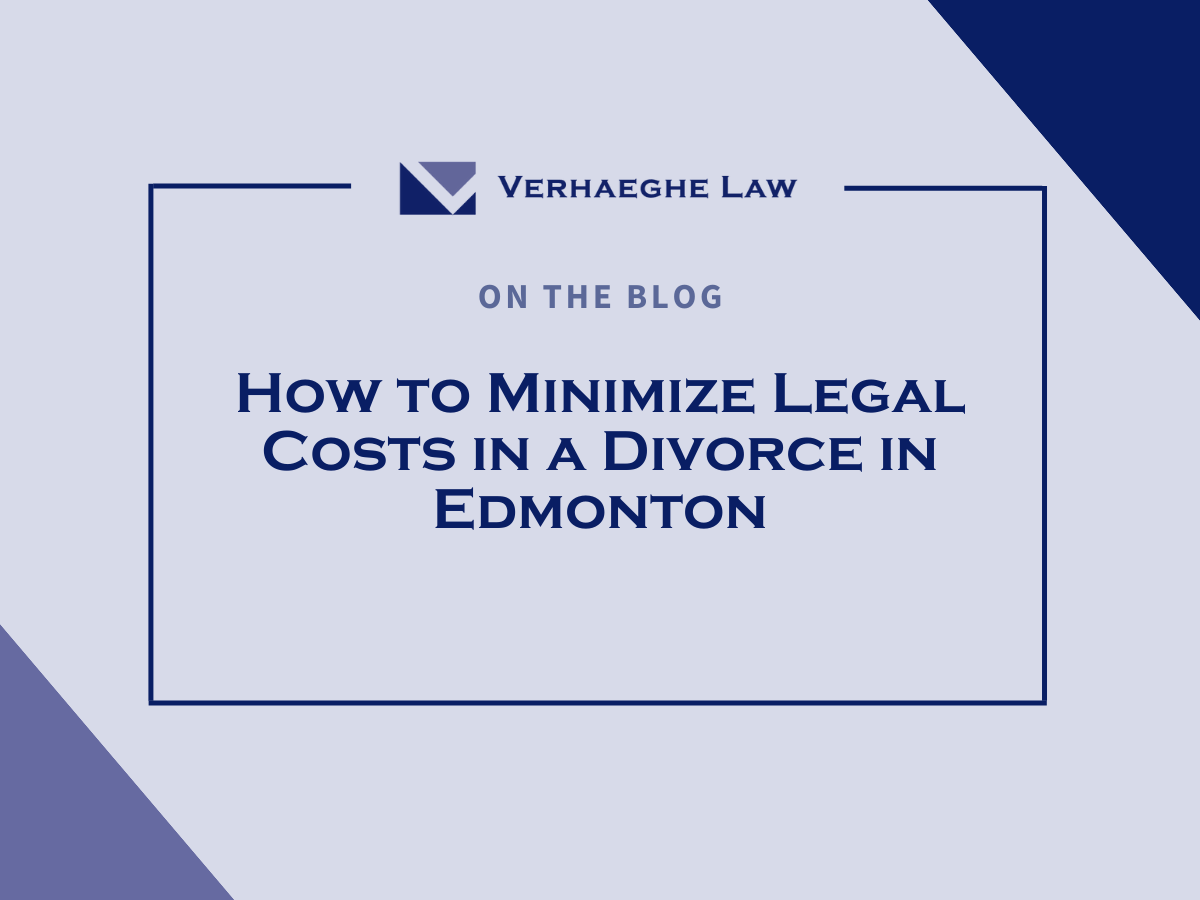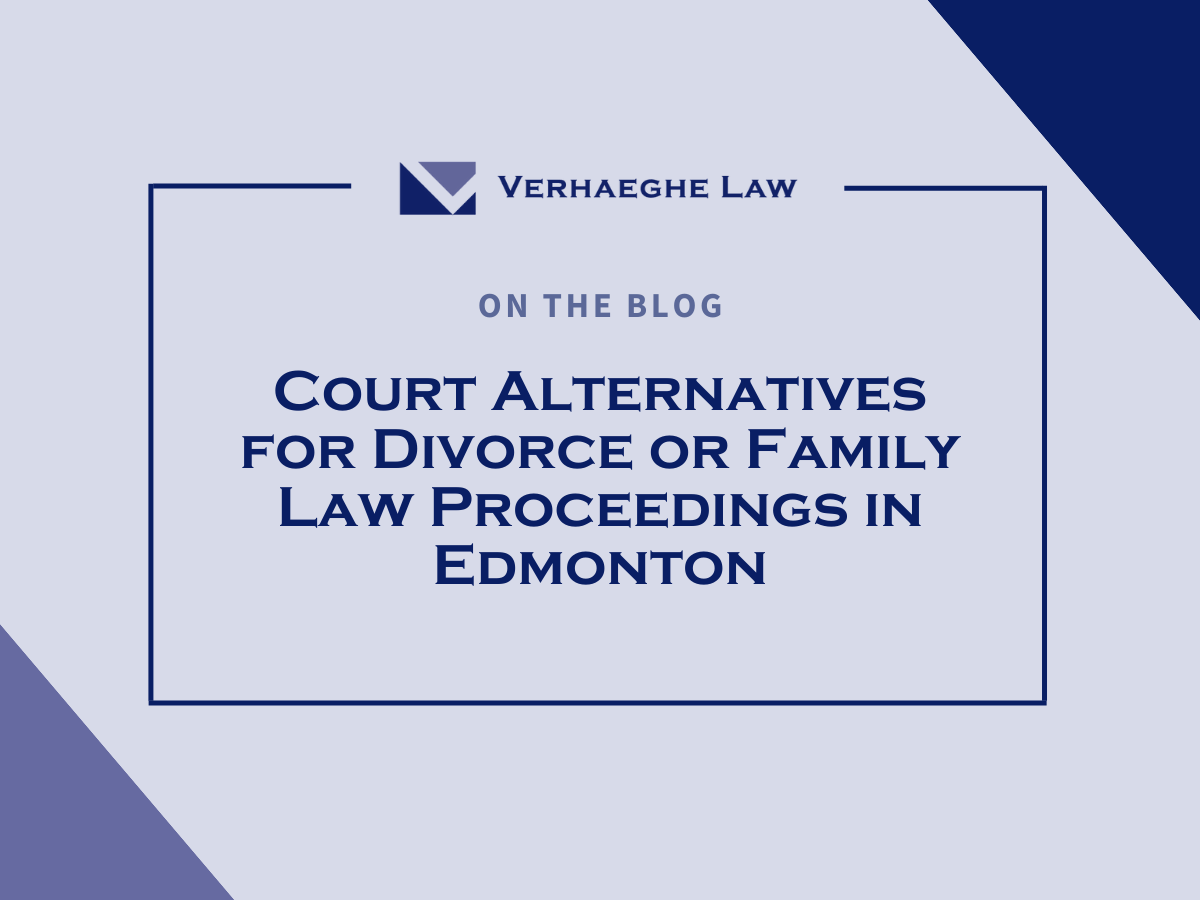How to Minimize Legal Costs in a Divorce in Edmonton

Depending on circumstances, the legal costs of a divorce in Edmonton can add up. There are a few ways in which you may be able to minimize them. What may be best for you will depend on a number of factors, including you and your former spouse’s willingness to collaborate on the terms of your separation. Contact us today to discuss your case with our Edmonton divorce lawyers.
Average Costs of Divorce in Edmonton
Every divorce is different, and the costs depend on many factors specific to your circumstances. When you speak with our Edmonton divorce lawyers, we will ask clarifying questions to better understand the context of your situation. With more information, we may be able to offer a more specific estimate.
The Court of King’s Bench charges a $260 commencement fee for a Statement of Claim for Divorce. There may be additional fees for filing for divorce where children are involved. Overall, the legal costs of a divorce in Edmonton can range from under $2,000 to the tens of thousands.
Uncontested divorce tends to be the least expensive. When the divorcing spouses prioritize collaboration, the terms of their separation may be resolved more quickly. This likely means fewer lawyer fees, and potentially no need for costly court involvement.
A contested divorce can become quite expensive. If the parties are unable to come to an agreement, they may each require more time to prepare negotiation strategies with their respective lawyers. This can add up legal costs. If court intervention is required, there are costs associated with applications, claims, counterclaims, and trials.
When you speak with our Edmonton divorce lawyers in your initial consultation, we may be able to help clarify what the costs of your divorce may be. We are happy to discuss how we manage our legal fees, and work with you to ensure our work together is both time and cost effective.
Making the Most of Your Time With Your Edmonton Divorce Lawyer
At Verhaeghe Law, the best interests of our clients come first. When it comes to a divorce, this means coming to a satisfactory agreement regarding the terms of your separation.
In order to make the most of our time working together, here are a few steps you may wish to take:
- Organize your papers, including financial statements and any other documents related to your divorce. This can help us focus on solutions when we meet, instead of spending time coordinating information.
- Write down your questions in advance, so that we can dive right into discussing them.
- Tend to your emotional needs with the help of a therapist, support group, friends, or others. Divorce can be a profoundly stressful, highly emotional time, and the nuances of your personal relationship will likely influence your decision-making. While our Edmonton divorce lawyers are happy to listen, it may be in your best interests to seek external support for the emotional journey of your separation.
If you have questions or concerns about the legal costs of your divorce in Edmonton, or would like to discuss what process may work best for you, contact us today to schedule your initial consultation.
Alternative Forms of Divorce
When a separating couple is willing to collaborate, alternative forms of divorce may be possible. These often mean lower legal costs, and may be quicker overall.
Mediation and collaborative divorce are two of the most popular alternative forms to a traditional divorce. They are similar in that the separating parties agree to collaborate, seeking to come to an agreement as mutually satisfactory as possible.
What is the difference between mediation and collaborative divorce? In mediation, a neutral third party works together with the separating spouses to clarify the points of their separation. In collaborative divorce, both parties and their respective lawyers work together towards a solution.
To learn more, including what may be right for you, contact us to schedule an initial consultation.
Contact Our Edmonton Divorce Lawyers Today For a Consultation
Divorce is difficult, and the legal costs associated with the dissolution of your marriage can be profound. If both parties are willing to collaborate, there may be an opportunity to keep costs low. Even in a contentious divorce, navigating the process with a solutions-oriented approach can help reduce legal costs. Every case is different, and the costs of your divorce may depend on a wide range of circumstances. Contact us today to set up a consultation with our Edmonton divorce lawyers and learn how we may be of service to you.
** Please note, this article is intended as a general overview on the subject of divorce law, and is not intended to be legal advice. If you are seeking legal advice, please consult with an Alberta divorce lawyer.







